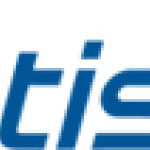- Industry: Telecommunications
- Number of terms: 29235
- Number of blossaries: 0
- Company Profile:
ATIS is the leading technical planning and standards development organization committed to the rapid development of global, market-driven standards for the information, entertainment and communications industry.
A binary encoding scheme in which a signal parameter, such as electric current or voltage, undergoes a change in a significant condition or level every time that a "one" occurs, but when a "zero" occurs, it remains the same, i.e., no transition occurs. Note 1: The transitions could also occur only when "zeros" occur and not when "ones" occur. If the significant condition transition occurs on each "zero," the encoding scheme is called "non-return-to-zero yyspace" (NRZ-S. ) Note 2: NRZ-M and NRZ-S signals are technically interchangeable; i.e., one is the logical "NOT" (inverse) of the other. It is necessary for the receiver to have prior knowledge of which scheme is being used. Without such knowledge, it is impossible for the receiver to interpret the data stream correctly; i.e., its output may be the correct data stream or the logical inverse of the correct data stream. Synonyms conditioned baseband representation, differentially encoded baseband, non-return-to-zero one.
Industry:Telecommunications
A binary code uniquely identifying a signaling point in a signaling network. This code is used, according to its position in the label either as destination point code or as originating point code.
Industry:Telecommunications
A binary code in which consecutive decimal numbers are represented by binary expressions that differ in the state of one, and only one, one bit. Synonym reflected code.
Industry:Telecommunications
A balanced transformer used to perform a conversion between 4-wire and 2-wire operation. Note 1: For example, a 4-wire circuit may, by means of a 4-wire terminating set, be connected to a 2-wire telephone set. Also, a pair of 4-wire terminating sets may be used to introduce an intermediate 4-wire loop into a 2-wire circuit, in which loop repeaters may be situated to amplify signals in each direction without positive feedback and oscillation. Note 2: Four-wire terminating sets have been largely supplanted by resistance hybrids.
Industry:Telecommunications
A binary code in which all possible bit patterns that can be made from a fixed number of bits are used to encode user information but no overhead information. Note: Examples of dense binary codes are (a) a pure binary representation for sexadecimal digits using all sixteen possible patterns and (b) an octal representation using all eight patterns. A binary representation of decimal numbers using four binary digits of which only 10 of the possible 16 patterns are used is not a dense binary code. If a binary code is not dense, the unused patterns can be used to detect errors inasmuch as they should only occur if there is an error.
Industry:Telecommunications
A bilateral memorandum of agreement between two System Managers on the security aspects of an interconnection between their two systems. See also: Community Security Policy.
Industry:Telecommunications
A Bell-LaPadula security model rule allowing a subject read access to an object only if the security level of the subject dominates the security level of the object.
Industry:Telecommunications
A beam of light whose electric field intensity distribution is gaussian. Note: When such a beam is circular in cross section the intensity at distance r from the center, E (r,) is given by where E (0) is the electrical field strength at the beam center, i.e., at r = 0; and w is the value of r at which the intensity is 1/e of its value on the axis.
Industry:Telecommunications
A batch of commands and responses, prerecorded on a terminal computer, for the purpose of facilitating easy or automatic access to a network. Note: A chat script usually contains a user name and a password that are automatically supplied to the network machine during the login procedure.
Industry:Telecommunications
